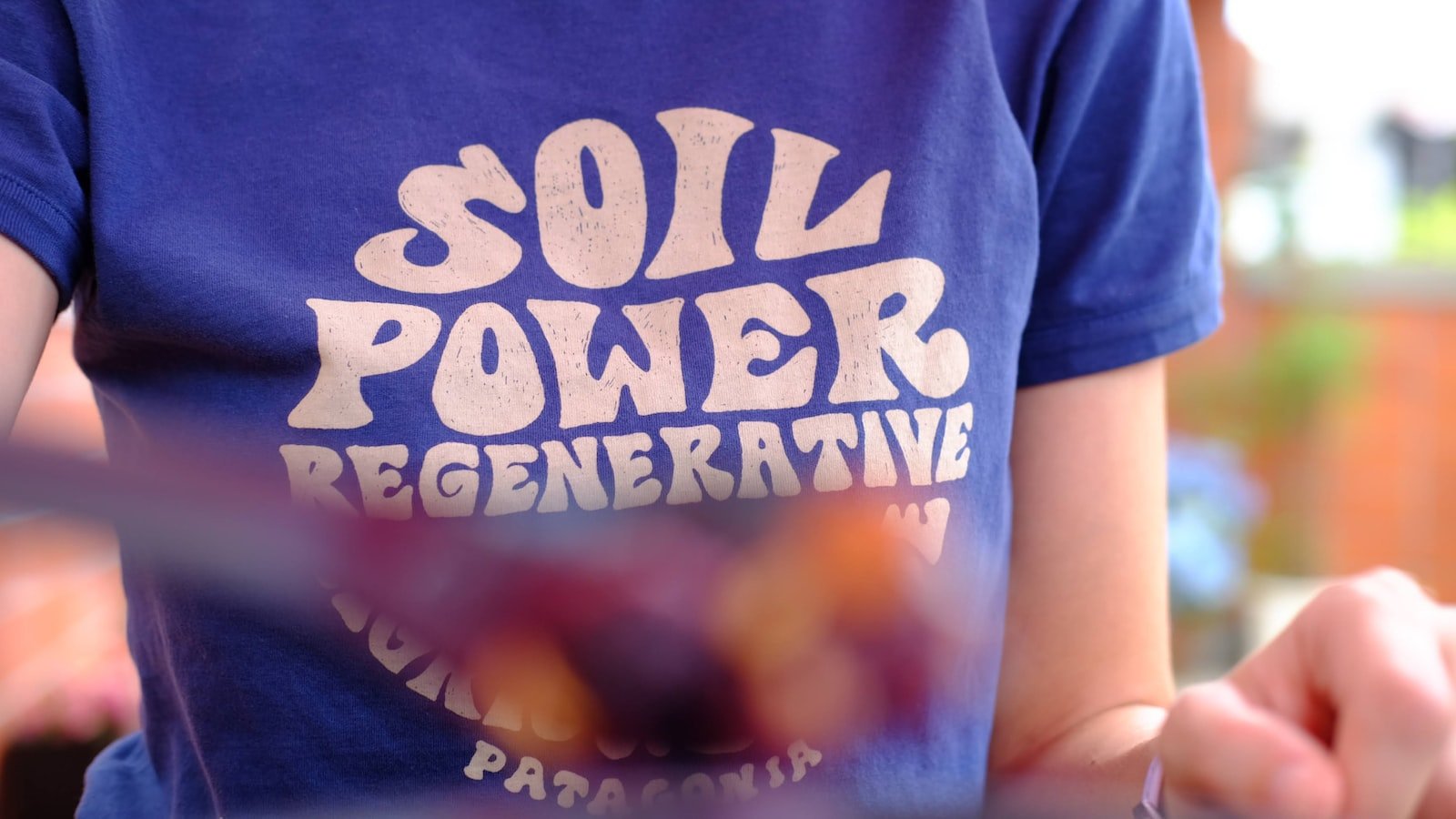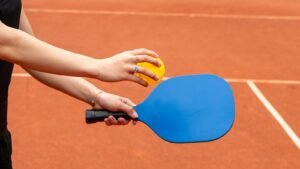The sun beats down on the vibrant green court, as players clad in athletic gear brace themselves for an intense yet exhilarating match of pickleball. The chirping of birds overhead seem to fade into the background as the tension rises, for this isn’t just a casual game; it’s a battle of skill, strategy, and, above all, sportsmanship. As the popularity of this rapidly growing sport continues to soar, it becomes ever more crucial to delve into the ethical aspects governing competitive pickleball. From acts of fair play to the embodiment of good sportsmanship, this article explores the multifaceted world where competitive pickleball and ethical dilemmas intersect.
Table of Contents
- Understanding the Principles of Fair Play in Competitive Pickleball
- Maintaining Sportsmanship in Competitive Pickleball: A Necessity for the Game
- Addressing the Ethical Dilemmas in Competitive Pickleball
- Guidelines for Promoting Fairness and Sportsmanship in Competitive Pickleball
- Exploring the Role of Officials and Players’ Responsibility in Upholding Ethical Standards
- Q&A
- Closing Remarks

Understanding the Principles of Fair Play in Competitive Pickleball
Competitive pickleball is not just about skill and strategy, but also about upholding the principles of fair play. These principles lay the foundation for maintaining a healthy and enjoyable atmosphere on the court. Whether you’re a seasoned player or new to the game, it’s essential to familiarize yourself with these principles to ensure a level playing field for all participants.
The first principle of fair play is sportsmanship. This means treating opponents, teammates, and officials with respect, regardless of the outcome of the game. It involves maintaining a positive attitude and avoiding unsportsmanlike conduct, such as taunting, trash-talking, or intentionally distracting your opponents. Remember, the true spirit of competition lies in displaying good sportsmanship both during and after the game.
Another key principle is integrity. This entails adhering to the rules and regulations of pickleball at all times. Cheating or bending the rules to gain an unfair advantage not only undermines the integrity of the game but also tarnishes your own reputation as a player. Show integrity by making honest line calls, acknowledging faults, and gracefully accepting decisions made by officials. By doing so, you contribute to a fair and transparent playing environment.
Lastly, fairness is at the core of competitive pickleball. Treat all players equally, regardless of their experience level or skill. Remember that everyone has the right to a fair chance to compete without being hindered by unnecessary distractions, favoritism, or discrimination. Embrace fairness by embracing teamwork, cooperating with your opponents to resolve disputes, and always playing to the best of your abilities.
In summary, understanding and embracing the principles of fair play in competitive pickleball is crucial for fostering a welcoming and enjoyable environment for all participants. So, step onto the court with a spirit of sportsmanship, uphold integrity by adhering to the rules, and ensure fairness by treating everyone equally. When these principles are embraced, not only will the game become more enjoyable, but it will also encourage the growth and development of the sport as a whole.
Maintaining Sportsmanship in Competitive Pickleball: A Necessity for the Game
Competitive pickleball is an exhilarating and fast-paced sport that fosters camaraderie and healthy competition among players. As the game continues to gain popularity, it becomes increasingly important to emphasize the value of sportsmanship both on and off the court. Sportsmanship involves not only adhering to the rules but also exhibiting respect, fairness, and integrity towards opponents, officials, and spectators.
To cultivate an atmosphere of sportsmanship in competitive pickleball, players must prioritize respect. Whether it’s acknowledging a well-executed shot or promptly conceding a point when an opponent’s shot seems like a winner, showing respect is crucial. Engaging in friendly exchanges, offering compliments, and supporting fellow players are simple gestures that can create a positive environment for everyone involved.
Fairness is another fundamental aspect of sportsmanship in pickleball. Upholding fair play means abiding by the rules and avoiding unsportsmanlike behaviors such as cheating, arguing, or intentionally distracting opponents. It is essential to remember that the spirit of the game lies in honorable and fair competition, providing an equal opportunity for all players involved.
Additionally, maintaining integrity is integral to upholding sportsmanship in competitive pickleball. Demonstrating honesty, even in moments of uncertainty or when a call could impact the outcome of the match, requires considerable integrity. Players should prioritize admitting mistakes, seeking clarity from officials, and acknowledging their opponent’s achievements with grace.
In essence, sportsmanship in competitive pickleball ensures that the game remains enjoyable and respectful for all participants. By prioritizing respect, fairness, and integrity, pickleball can continue to thrive as a sport that exemplifies the values of sportsmanship. So let’s remember, playing with honor and embracing good sportsmanship not only enhances the overall experience but also creates a welcoming and inclusive community for all pickleball enthusiasts.
Addressing the Ethical Dilemmas in Competitive Pickleball
For any sport, ensuring fairness and maintaining ethical standards is pivotal to its success. Pickleball, a rapidly growing sport, is no exception. As the sport gains more popularity and competitiveness, it becomes imperative to address the ethical dilemmas that may arise. Here are a few key areas to consider:
- Sportsmanship: Sportsmanship, which encompasses respect, fairness, and integrity, plays a vital role in creating a positive and ethical environment in competitive pickleball. It is crucial for players to adhere to the principles of fair play, treating opponents with respect, and upholding the rules of the game.
- Use of Technology: With the advancement of technology, the question of where to draw the line between gaining a competitive edge and compromising ethical standards can arise. From using sophisticated paddle materials to wearable tech devices, it is important to establish guidelines surrounding the use of technology to maintain fairness in the game.
- Cheating and Gamesmanship: While it is unfortunate, instances of cheating and gamesmanship can occur in any sport, and pickleball is no exception. It is necessary to actively discourage such behavior and establish clear consequences for those who engage in unethical practices.
Addressing and proactively dealing with these ethical dilemmas is essential to preserve the integrity of competitive pickleball. By promoting sportsmanship, establishing guidelines for technology use, and deterring cheating and gamesmanship, players and officials alike can ensure a level playing field and a positive experience for all involved.
Guidelines for Promoting Fairness and Sportsmanship in Competitive Pickleball
In the spirit of promoting fair play and sportsmanship, the following guidelines have been put together to ensure a positive and respectful environment when participating in competitive pickleball.
1. Respect your opponents: Treat your opponents with courtesy and respect both on and off the court. Remember, they are here to enjoy the game just like you. Avoid any unsportsmanlike behavior such as taunting, trash-talking, or making derogatory comments.
2. Follow the rules: Adhere to the official rules of pickleball, maintaining a high level of integrity throughout the game. No cheating, intentionally breaking rules, or engaging in any unethical behavior that may compromise the fairness of the match.
3. Play with a positive attitude: Foster a friendly atmosphere by displaying good sportsmanship. Be gracious in both victory and defeat; congratulate your opponents on a well-played point or match. Keep your emotions in check, avoiding any outbursts or disruptive behavior.
4. Communicate effectively: A clear and open line of communication is essential in fostering fairness and sportsmanship. Clarify any disagreements or conflicts respectfully, discussing them with your opponents or the referee if necessary.
5. Support your teammates: If playing on a team, always encourage and support your teammates. Offer constructive feedback and motivate each other to perform at your best, maintaining a positive team spirit throughout the competition.
By adhering to these guidelines, we can cultivate an atmosphere of fairness, respect, and true sportsmanship which enhances the pickleball experience for all participants.
Exploring the Role of Officials and Players’ Responsibility in Upholding Ethical Standards
When it comes to sports, ethical standards play a vital role in maintaining fairness and integrity. Both officials and players have a shared responsibility in upholding these standards, ensuring that the game remains not only competitive but also governed by a strong moral compass.
The Role of Officials:
- Officials serve as the unbiased enforcers of the rules and regulations, ensuring that the game is played within the boundaries of fair play.
- They are responsible for making crucial decisions on the field, as their judgments impact the outcome of the game.
- Officials must demonstrate impartiality, transparency, and consistency in their calls, creating an environment of trust among players and fans.
- They should be well-versed in the rules of the sport, undergo continuous training, and exhibit proficiency in their duties.
- Besides fair play enforcement, officials should also promote player safety, ensuring that the game is conducted without endangering participants.
Players’ Responsibility and Ethical Standards:
- Players must understand the rules of the game and adhere to them to maintain fair competition and sportsmanship.
- They are expected to respect their opponents, officials, and the integrity of the sport, refraining from any form of cheating or unsportsmanlike behavior.
- Players should demonstrate honesty and integrity during gameplay, accepting both victories and defeats with grace and humility.
- They should prioritize the safety and well-being of themselves and others, avoiding any actions that could lead to injuries or harm.
- Lastly, players play a crucial role in encouraging mutual respect and camaraderie among teammates and opponents, fostering a positive and sportsmanlike atmosphere.
In conclusion, officials and players both hold significant responsibilities in upholding ethical standards within the realm of sports. By fulfilling their duties with integrity and respect, they contribute to the preservation of fair play, ensuring that the true spirit of the game remains alive. Sportsmanship and ethical conduct not only enhance the experience for all participants but also inspire the next generation of athletes to follow in their footsteps.
Q&A
What is pickleball?
Pickleball is a popular paddle sport that combines elements of tennis, badminton, and table tennis. It is played with a perforated plastic ball and paddles on a court similar to those used in badminton.
Why is fair play important in competitive pickleball?
Fair play ensures that all participants have equal opportunities to succeed in the game, promoting a level playing field and maintaining the integrity of the sport.
What are some examples of fair play in pickleball?
Examples of fair play in pickleball include adhering to the rules and regulations, respecting opponents and officials, and not attempting to gain an unfair advantage through cheating or unsportsmanlike behavior.
Why is sportsmanship crucial in competitive pickleball?
Sportsmanship promotes respect, camaraderie, and friendly competition among players. It fosters a positive environment where all participants can enjoy the game and encourages athletes to compete with honor and integrity.
How does practicing good sportsmanship enhance the pickleball experience?
Practicing good sportsmanship enhances the pickleball experience by fostering teamwork, encouraging fair play, and creating a positive atmosphere for participants. It also helps to build lasting relationships with fellow players and promotes the growth and development of the sport.
What are some unethical behaviors to avoid in competitive pickleball?
Unethical behaviors to avoid in competitive pickleball include cheating, verbal abuse or disrespectful language towards opponents or officials, intentionally injuring opponents, and engaging in unsportsmanlike conduct such as trash-talking or taunting.
How can players ensure they are practicing good sportsmanship during a pickleball match?
Players can ensure good sportsmanship by treating opponents with respect, following the rules, accepting both victories and defeats graciously, and refraining from engaging in any form of cheating or unsportsmanlike behavior.
What can the pickleball community do to promote fair play and sportsmanship?
The pickleball community can promote fair play and sportsmanship by educating players about the importance of these values, organizing workshops and seminars on sportsmanship, and implementing effective measures to address any instances of unethical behavior.
Closing Remarks
As the final rally concludes and the cheering subsides, it’s time to reflect on the virtuous core of competitive pickleball. Amidst the energetic splendor and intense volleys, a deeper undercurrent flows – the ethics of fair play and sportsmanship. In this realm, where paddle meets ball, integrity takes center stage, weaving together the fabric of this beloved sport.
Pickleball, affectionately known as the “gentleman’s game,” entices us with its graceful agility and passion for healthy competition. It is here, on the court, that players embark on a quest for victory, but not at the expense of their moral compass. The spirit of fair play pulsates through every swing, reminding us that success derived from deceit is as hollow as a shattered pickleball.
In the domain of competitive pickleball, true sportsmanship thrives in the hearts of its players. Exhibited by upholding the rules, respecting opponents, and embracing the principles of mutual understanding, sportsmanship serves as the guiding light, casting aside the shadows of arrogance and dishonesty. The noble characters pervading the pickleball community genuinely value honesty, camaraderie, and the unspoken oath to celebrate the game’s integrity, transcending individual triumphs.
In this enchanting arena, players navigate the delicate balance between fervor and grace, understanding that even the fiercest rivalry should be adorned with respect and empathy. The true measure of a contestant’s character lies not only in their skillful shots but in their graceful acceptance of victory and their gracious acknowledgment of defeat. In the wake of disappointment or triumph, players are granted the opportunity to inspire, to uplift, and to remind all witnesses that even in heated competition, the ethical compass will always point due north.
So, as the final pickleball is struck, let us honor the pulsating heartbeat of sportsmanship that reverberates throughout the court. Let us celebrate the relentless pursuit of excellence without compromising ethics. Let us raise our paddles in solidarity, knowing that the true glory lies not in silverware accumulated but in the indomitable spirit of fair play. For it is here, in the realm of ethical competition, that pickleball truly captivates and elevates the human spirit.
As an affiliate, my content may feature links to products I personally use and recommend. By taking action, like subscribing or making a purchase, you’ll be supporting my work and fueling my taco cravings at the same time. Win-win, right?
Want to read more? Check out our Affiliate Disclosure page.




